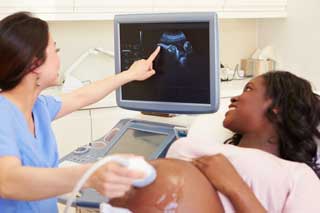The Word from Lansing: The Future of Roe v. Wade

Posted August 17, 2018
For over forty-five years, Catholics have sought to change hearts and minds about abortion laws. Each January since the legalization of abortion, pro-life advocates have marched upon Washington D.C., speaking out for the unborn and decrying the tens of millions of lives that have been lost. The tragic 1973 rulings have led to enormous grief and pain for women, men, and families across the country. The Michigan Department of Health and Human Services reports there were 26,594 induced abortions in this state alone last year.
Today’s reality does not accurately reflect history. Prior to 1973, abortion had been banned in Michigan for almost 130 years, with an exception to save the life of the mother. In November 1972, a few months before the U.S. Supreme Court considered the issue, Michigan voters overwhelmingly rejected Proposal B, a measure allowing for legalized abortion through twenty weeks of pregnancy. Michigan Catholic Conference worked closely with pro-life groups leading up to the vote, promoting education on the dignity of the human person and the negative impact of abortion through the Love and Let Live campaign.
Unfortunately, in January 1973, the will of voters in Michigan and many other states was quickly discarded. The U.S. Supreme Court decision in Roe v. Wade allowed abortion for any reason during the first three months of pregnancy. The ruling seemed to place some limitations during the second trimester (“for the mother’s health”) and wrote that in the final trimester, abortion could only be performed to protect the life or health of the mother. On the same day, however, the opinion in Doe v. Bolton, a lesser known but equally devastating case, was also issued. It defined “health” broadly, allowing virtually any abortion in the last three months of pregnancy. A later Court case reaffirmed that abortion could not be banned before a pregnancy’s viability (Planned Parenthood v. Casey, 1992).
Fast forward to today. The U.S. Senate is considering the President’s nomination of federal appeals court Judge Brett Kavanaugh to fill a seat opened by Justice Anthony Kennedy’s retirement. Since Justice Kennedy’s announcement, Roe v. Wade and Doe v. Bolton have been at the forefront of public debate on his replacement. Some have asserted that any nominee that does not publicly endorse these cases is unfit to serve on the Supreme Court. The United States Conference of Catholic Bishops (USCCB) has strongly criticized these claims, calling support for these flawed and destructive rulings “an impoverished standard for assessing judicial ability.” Since 1973, the USCCB pointed out, there has been a great deal of “informed criticism and public resistance” to the decisions.
While the USCCB does not support or oppose the confirmation of particular judicial nominees, it does advocate for a society that welcomes every human life. Each Friday through September 28, the U.S. bishops have called for American Catholics to pray for a change in the nation’s laws so that the value of every person is recognized and defended. It is unclear what the immediate future holds for Roe v. Wade and Doe v. Bolton, but the pro-life voices that have been speaking out for decades are gaining strength and numbers, especially with the younger generation.
If the decisions are overturned one day soon, the issue of whether or not abortion is legal will return to the states. In Michigan, the most recent pre-Roe law that banned abortion remains on the books (Public Act 328 of 1931) and may immediately go back into effect. Until that day, all people of goodwill can continue to speak up for life, to pray for the dignity of all persons to be respected, and to assist women and children in difficult situations. Each of us have an important role to play in transforming our society; transforming it from a society that decries the millions of lives lost to one that can meet, celebrate, and support those lives.
